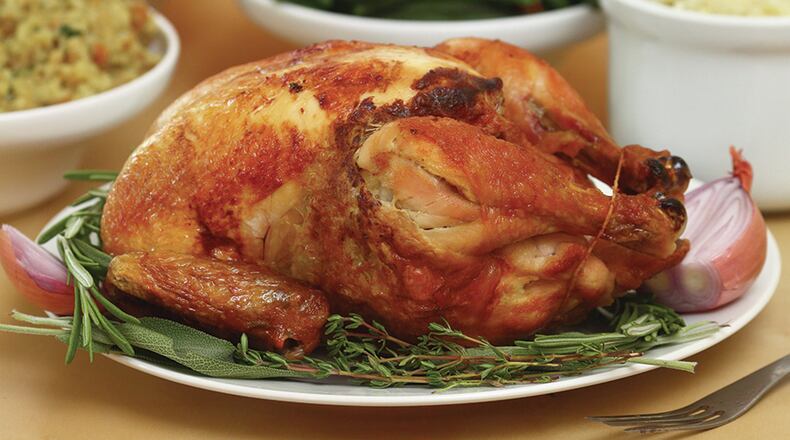Southerners love their fried foods. And that includes the holiday turkey.
But for the inexperienced fryer, the juicy bird could quickly go up in smoke, experts say.
Thanksgiving is the No. 1 day of the year for cooking fires, followed by Christmas Day and Christmas Eve, the National Fire Protection Association says. More than three times the average number of cooking infernos happen when Thanksgiving goes up in flames. The frying game is particularly fraught: deep fryer fires cause an average of five deaths and 60 injuries a year and do more than $15 million in property damage, according to the association.
“Deep fried turkey can be delicious but poses significant safety risks if not done properly,” the Barrow County Fire Department warned in a social media post.
In 2022, an estimated 1,610 home cooking fires were reported to U.S. fire departments on Thanksgiving Day, reflecting a 399% increase over the daily average, the NFPA said.
“Thanksgiving is a hectic holiday with multiple dishes cooking and baking at the same time, along with lots of guests, entertaining and other distractions that can make it easy to lose sight of what’s on the stove or in the oven,” said Lorraine Carli, vice president of outreach and advocacy at NFPA. “With all these factors at play, it’s not surprising that the number of cooking fires spikes so dramatically.”
Turkey fryers should be handled with care because of the intense heat, experts warn. They can also tip over, spilling the sizzling oil.
Putting a partially frozen turkey into a hot fryer is a particularly bad idea, as that can cause oil to splatter. For a safe alternative, NFPA recommends purchasing a fried turkey from a grocery store or restaurant or buying a fryer that does not use oil.
“Keeping a close eye on what’s cooking and minimizing the likelihood of getting distracted can greatly reduce the risk of cooking fires,” Carli said. “As simple as these preventative measures may sound, they truly can help ensure that everyone enjoys a festive, fire-free holiday.”
But for those who decide they’ll fry if they want to, experts advise these safety tips:
1. Place the fryer outside on a flat surface that can’t burn, such as cement, and several feet away from anything that can ignite.
2. Thaw the turkey completely before cooking.
3. Don’t let children or pets come anywhere near it. An adult should watch the fryer while it cooks.
4. Use a fryer with thermostat controls.
5. Use pot holders and oven mitts when handling the turkey.
Even if you take the safer route and stand by your pan, safety is still important. Experts advise these tips for ensuring a safe holiday:
1. Stay in the kitchen when cooking on the stovetop and keep an eye on the food.
2. Stay inside the home when cooking your turkey, and check on it frequently.
3. Keep children away from the stove, hot foods and liquids (and candles and lit fireplaces, of course)
4. Make sure smoke alarms work.
About the Author
Keep Reading
The Latest
Featured



